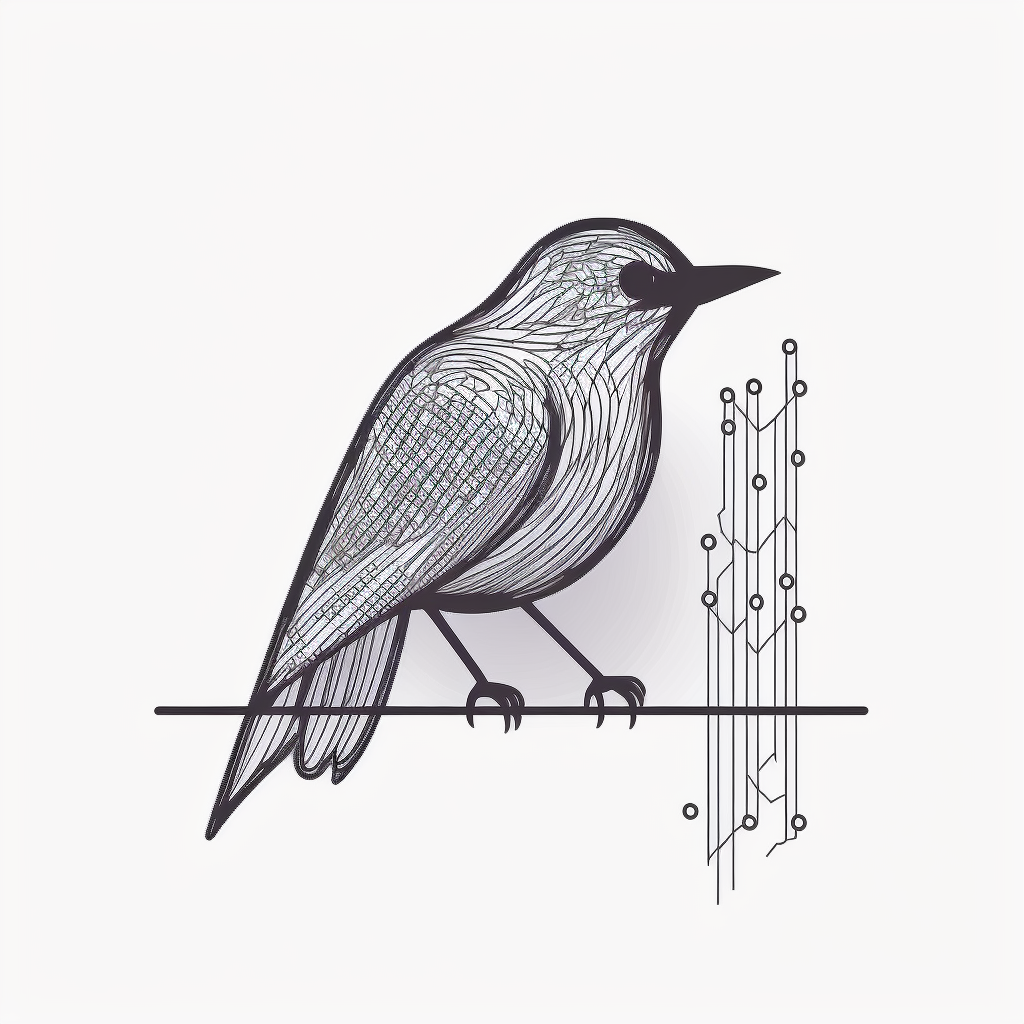I make the specification of non-linux because otherwise this would just become a thread full of obscure distros that do the same thing as a million other distros.
Some lesser known OSs:
- AROS - based on Amiga OS, has some derivatives like IcarOS and MorphOS
- Haiku - based on BeOS
- Redox - Unix-like, made in Rust (might technically count as linux?)
- Serenity - Unix-like, very late 90s look and feel
- Kolibri - Tiny OS, the image is ~44MB. It also has a smaller version that fits in a single floppy.
- PhantomOS - When 3 Russians decide to turn everything about a typical OS upside down.
Plan 9
It is an absolutely revolutionary OS by some of the original creators of Unix, that extends its core concepts in more coherent and elegant ways into the world of modern computing, instead of having everything from networking on up be tacked on by people who were perfectly capable but lacked the vision.
Examples:
Instead of NAT, if one machine on your network has the internet and the others don’t, you can say “use that other machine’s network stack now” and boom everything works. Your machine knows what its real external IP address is, it can listen on world-facing ports on the other machine as it needs to, everything works and is simple.
There’s a command for “run the rest of this session’s commands on that other machine’s CPU / memory” and it all just works. The sensation is that your computer just got magically faster.
Etc etc. I actually haven’t played with it extensively, and deployment is so limited that I’m not sure how useful it would even be, but if you are a fan of well made OSs that do things in a genuinely different fashion, it is objectively the best option to play around with. sdf.org has a place you can get an account on their Plan 9 machines and they do little free beginner courses in it over livestream.
This. I’d love to see Plan 9 go mainstream in some form, but alas it seems very unlikely.
I’ve heard said of it that it’s "more Unix than Unix.
I’ve come across Plan 9 in the past and assumed it was only really useful in a “time-sharing” type scenario like OG Unix used to be used for. Am I wrong about that?
Think less about time sharing and more about using all the computers you own together.
You would have a netbook with no compute power as your UI sitting on your couch. You could connect to your beefy desktop to do all the computations for your video editor or playing a game and never have to be sitting at your desk.
You could also have a big file store device with lots of drives to store stuff.
We can do some of this now, I ssh into my desktop from my couch and have a NFS in the basement. But they all operate as separate devices that i have to really work at getting to operate together. Plan9 was designed where you’d just pick devices off of the network and the tasks operated normally. Pick your video card, local or over the network to the beefier GPU.
The networking stuff probably won’t do you much good if you do not have other Plan 9 systems to talk to, but the GUI and window manager and editor, those also operate in this way that’s 100% different from anything else that exists. To me the networking and the way the file sharing works are probably the most interesting things, so IDK, you might be partly right.
I think this might be part of why it hasn’t caught on at all is that a lot of the stuff about it that works better only works better when talking with other Plan 9 systems, of which there aren’t really any.
I’d say so. It was built to be the sort of general purpose OS that Linux is, only taking into account everything we’ve learned about how to make a good operating system from the whole history of *nix. And Plan 9 is newer than Linux in the sense that its first release came out after the Linux kernel’s first release. X11 has even been run on Plan 9 with adapter layers.
Gotta love the naming of a P9 user space fork: Plan 9 from User Space
At a quick glance on the wiki page, it sounds like something that would work great if we needed hundreds “dumb” terminals that just connected to a central server and received/displayed the output back to the user
Incorrect. That’s X11; we have that. Plan 9 is a little hard to explain quick, but I gave some examples already of stuff that is trivial with it that’s a big weird difficulty on other modern systems, but in addition to that the whole UI and the terminal / editor also work radically differently to how Unixlike systems do it.
That’s most of what we do today.
Every web app you use right now - which is most of your day for most users - is just a dumb terminal UI hitting some API on some foreign computer.
Plan 9 uses the file system as a way of interacting with apis. Linux took this idea directly by copying in the
/procfilesystem from 9, which are not bytes on a disk but are instead the kernel presenting its running processes in the format of files and directories in your file namespace, and with which you can interact to control those processes.It also took this idea and created FUSE - file systems in user space - so that you can do the same thing on Linux as a user, but with not quite the same ease you have on plan 9 - and notably, fuse file systems are not naturally network file systems, and so you can’t export them as easily to the network as you can with nine machines, where it’s implicit.
Last, Linux took the idea of per-process namespaces from 9, setting the stage for all of the docker, snap, etc. tools we use today.
In short, a lot of nine already is mainstream because it’s been adopted by Linux. However, using plan 9 and then returning back to Linux feels like putting on bulky gloves, because Linux did not start with these concepts in mind, but bolted them on after.
/Tinyrant
TempleOS, because for it to go mainstream, a sizeable chunk of the population would need to go fully insane, and I think that’d be interesting
Maybe more insane would actually cancel out the insanity already existing?
Or do I now sound insane?
Anyway, came for Temple OS as well.
Yup. Ctrl+F’d here.
ReactOS. The “We have Windows at home” OS.
Maybe then it will see proper development to become that which it should be.
I wish I would win top prize of some lottery, I’d donate a good deal of money to ReactOS and pray it finally developed enough to at least manage to make stable installer images
I’d love for FreeBSD to become more mainstream/popular (again)
I really want to use FreeBSD but it doesn’t support my hardware sadly :(
TempleOS
So glad to see somebody finally mentioned the only God tier OS.
I run it at home (along with every other OS mentioned here so far).
It’s…really something.
Haiku - based on BeOS
“inspired by” would be more accurate. there’s no original BeOS code in Haiku for legal reasons (other than the interface, which was open-sourced with the release of BeOS 5). All backwards-compatibility with original BeOS software is (impressively) reverse-engineered. Haiku OS is, itself, original software made to - in every way - look, feel, and operate just like BeOS did.
edit: i had a buddy in high school who had a BeBox. it was like having the best of a Mac and a PC in one machine. it really was a spectacular machine and OS. i really wish Apple had picked it up, but they went with NeXTSTEP instead, which, i admit, was still a pretty solid choice.
PalmOS as an alternative to Android/ios
Do you mean the successor WebOS? Cause I thought that was pretty cool when I test-drove it in a mobile store.
It really feels like any alternative in mobile space would be a welcome addition, though first we’d need OEMs to stop being assholes and allow users to more easily install custom ROMs or whatever.
Now only to be found on LG TVs. :-(
Youtube in 160x160 at 1bpp.
I’m pretty sure it was 2 bits per pixel; my Palm M125 could do four shades of grey.
GNU Hurd and Plan9.
Gnu Guix is working on HURD integration.
I am on Guix, so I’m really excited to switch the kernel. But it won’t be available at least for a decade. Or maybe more.
I feel like HURD is the generational starship of operating systems. Will never be completed in my lifetime but eventually my great great grand children may some day use it.
Redox isn’t Linux, it uses its own kernel. I want this one to succeed above all others, just because Rust was born to perform this kind of application: guaranteed memory safety when dealing with tens of thousands of lines of code handling hundreds of moving parts running thousands of different tasks, all at a very low level.
I’ll second Plan 9, just because it sounds like scifi and truly takes advantage of how interconnected all computing hardware has become.
Third place goes to anything based on GNU Hurd. The microkernel architecture intrigues me, and I’d like to know how it effects the end user. Plus I’m just a big fan of the copyleft/FOSS aspect.
Also, I’d just like any mobile device alternative that’s not AOSP, and Linux seems like a bad fit for mobile in general. Why do we need a fully-featured, all-purpose kernel when we’re only gonna put it on a known number of SoCs and therefore a known set of hardware configurations? We could be optimizing the hell out of our privacy-friendly mobile OSes, but instead we’ve shackled ourselves to google or linux
Firefox OS. …really I just want Chrome OS but FOSS by Mozilla. I know it’s anti-privacy, but having sign-in + 1 click deployment on a new device is dope
Haiku is already pretty great to use in my opinion, despite still being in beta; with the right hardware you could easily daily drive it
OpenBSD. Imagine everyone just running a secure OS.
I remember running BeOS back in the early 90s so I guess I’d go with Haiku
HURD, obviously.
I’m happy with any OS as long as it’s GNU.
ReactOS would be kinda fun
Back to the ol’ times of Windows.
That too NT 5.x ! I wish we had stuck with Windows 2000 Professional.














